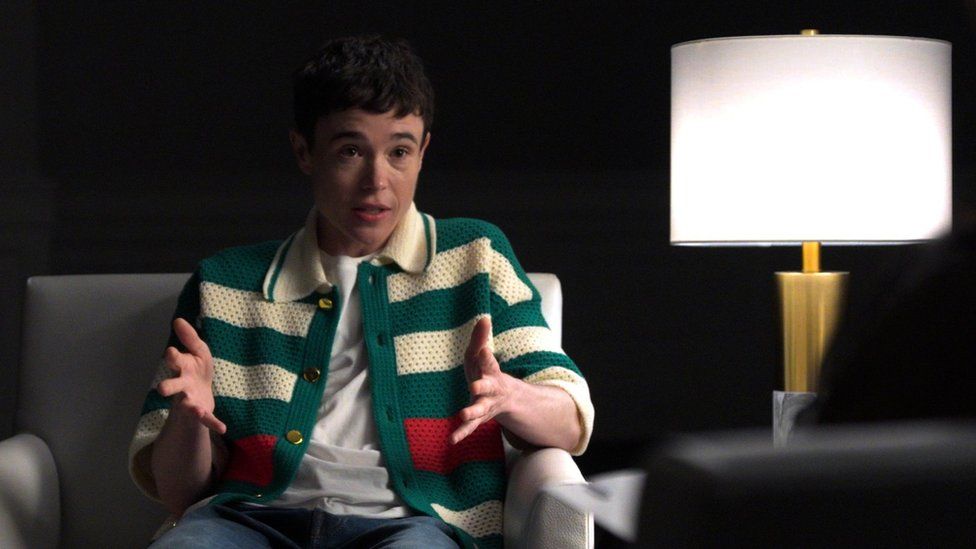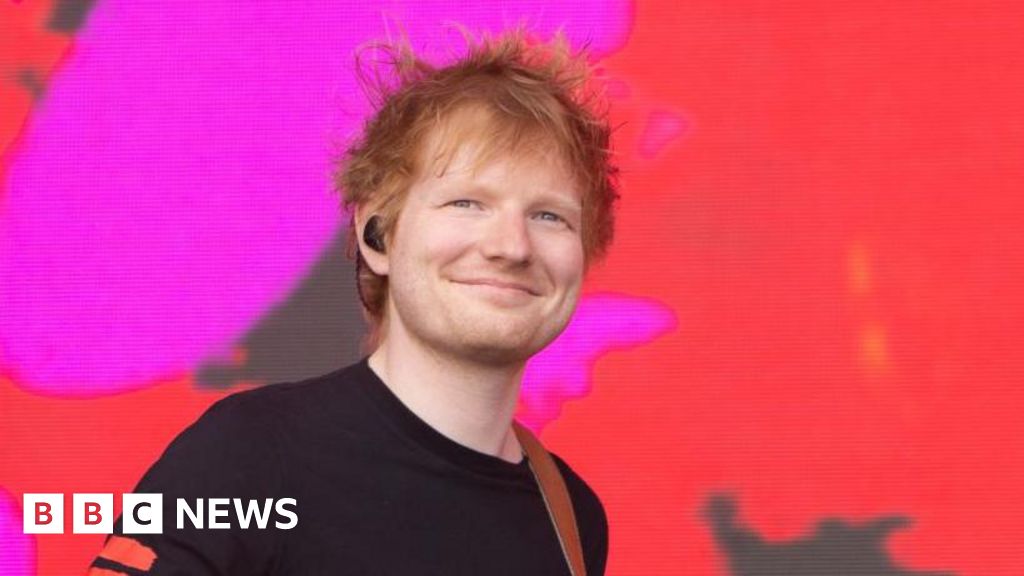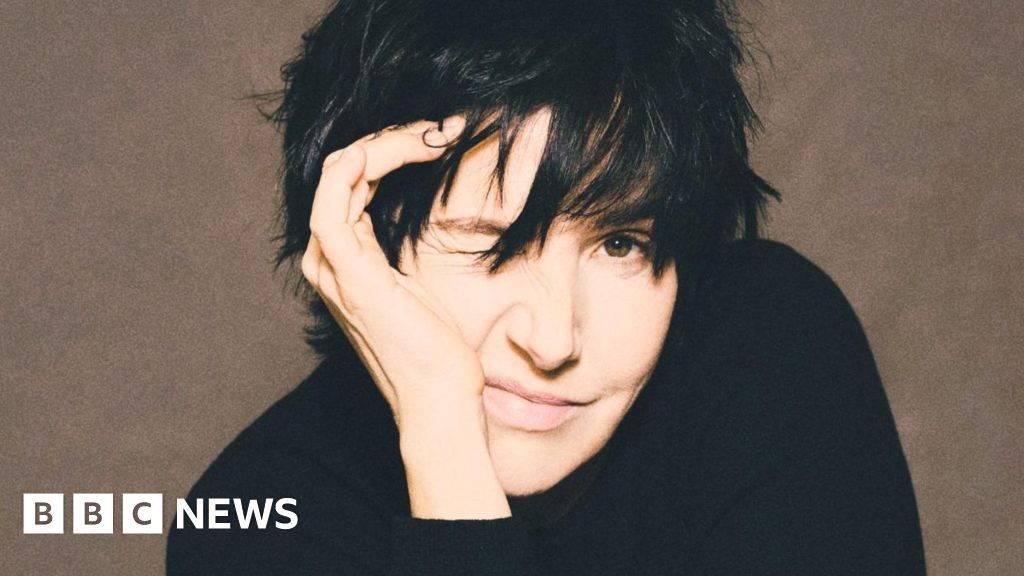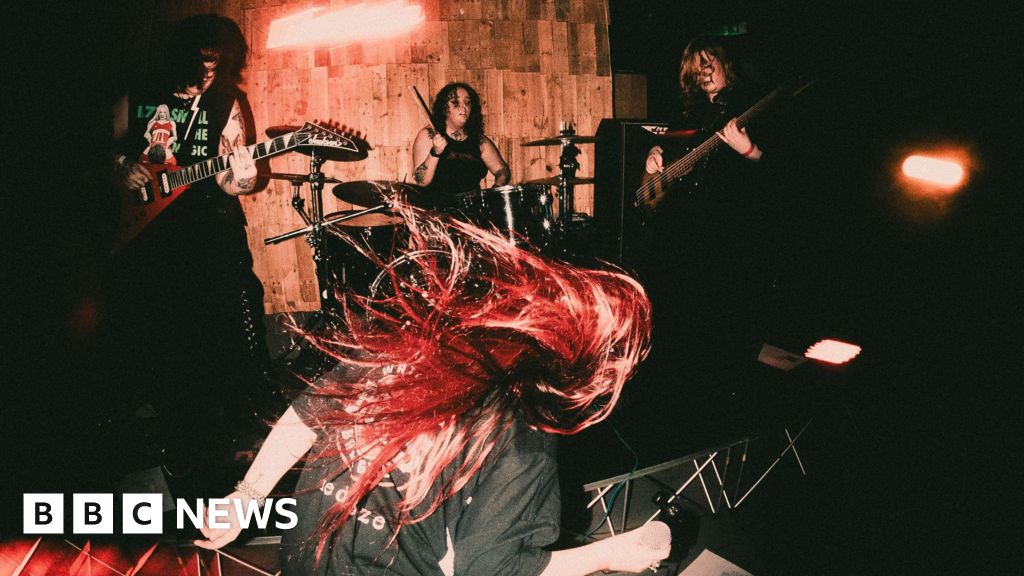ARTICLE AD BOX

Page's character in The Umbrella Academy transitioned in line with his real-life gender transition
By Megha Mohan and Yousef Eldin
BBC World Service
"I feel more excited about acting than I have in a very, very, very long time," Elliot Page says, smiling.
It's a good time in his life.
We meet at a hotel in Hollywood the week his memoir is released. It has become an instant bestseller.
"We just finished the final season of Umbrella and I felt so much more embodied and centred, to be able to start the day as 'me'," Page adds, "as opposed to being in my trailer with constant discomfort."
Page's character - originally named Vanya - transitioned to Viktor in season three of the Netflix superhero hit series The Umbrella Academy, in line with his real-life gender transition.
"It's who I've always been," the character Viktor tells his siblings, in an understated scene. Viktor asks if it is an issue for anyone and his siblings insist it is not, before returning to the original storyline. It was described as "movingly low-key" by Variety.
Image source, The Umbrella Academy/Netflix
Image caption,Elliot Page says Netflix producer Steve Blackman ensured a sensitive scene to reflect his character Vanya's transition to Viktor
Netflix employed trans writer Thomas Page McBee to incorporate the Viktor gender transition plotline into the show and the soft-touch approach worked with audiences around the world.
Nielsen Media Research - which evaluated views across all platforms - says that the series chalked more than 10.5 billion hours of streaming, making it the 13th most viewed original show of the year.
Page's Viktor instantly became one the best known trans men in fictionalised broadcasting - one of the least represented groups in the industry.
According to the 2022-2023 Where We Are On TV report by LGBT advocacy group Glaad, only 11 of the 596 LGBT characters portrayed across 100 global TV, film and streaming platforms were trans men.
Page says he's aware that he is one of the most high-profile trans men in the world and takes this seriously.
"I'm in this unique position," he says, "and I absolutely have to use my privilege and my platform to do what I can, in whatever way, to help my community."
When he wrote his memoir, Pageboy, he chose a lyric from a song by transgender musician Beverly Glenn-Copeland for the opening lines.
"This world has many ends and beginnings,
A cycle ends, will something remain?
Maybe a spark, once so bright, will bloom again."
The words resonated with Page.
"At so many points I'd find myself thinking, 'I was never a girl. I'll never be a woman. What am I going to do? I just want to be a 10-year-old,'" he tells the BBC.
"Then I started realising, 'Oh, that's because that's the last time I felt like myself, the last time I felt like I looked like myself and was in my body and knew who I was and had this spark,' you know?
"It's now coming back. That spark."
It was in December 2020, at the height of the Covid-19 global pandemic, that Page publicly came out as a trans man via his Instagram account. In a post that quickly gathered more than three million likes, Page wrote that he felt lucky to be making the announcement.
"There were years and years of turmoil about it," he says, "of getting really close and then pulling away, talking myself out of it."
Some of that reluctance was a hangover from the years of hiding his identity, on advice from film executives who shaped his early career. In his book he describes the Hollywood he encountered as a 20-year-old star of breakout independent movie Juno, as "plastic, empty, homophobic".
In Juno, he played a teenager who goes through an unplanned pregnancy. The role won Page an Oscar nomination and global fame.
"The success of Juno coincided with people in the industry telling me no-one could know I was queer," he writes in Pageboy, "that it wouldn't be good for me… So I put on the dresses and the makeup. I did the photo shoots."
He describes the level of discomfort, gender dysphoria, as crushing.
"I had to avoid my reflection. I couldn't look at pictures, because I was never there. It was making me sick."
At the same time gossip writers printed columns questioning his identity. Page says he's not sure pieces like that would be published now, in the age of social media.
"The articles you're referencing came out in 2008. I imagine if those came out now about someone, I mean, they would probably be eviscerated for writing something like that."
So does he believe a young trans person could come to Hollywood now, with no connections, and have a successful career?
Page pauses before conceding, "I'm not 100% sure. In some ways, potentially."
Then he pauses again, "But now, we're also in a time of such extreme hateful rhetoric against trans lives. There's still so far to go."
Community is the answer to polarising online debates about transgender people, he insists, and he wants to connect with young LGBT people from around the world, through his work.
We asked trans men who use the BBC languages services to send video questions for Elliot. One came from Adam, a 24-year-old pilot in India, whose family put him through conversion therapy and refused to let him leave the house for more than a year.
"This is not just my story," Adam says. "This is the story of trans people around the world. So my question is, what message do you have for trans people going through tough times?"
Page is visibly moved when he watches the video.
"My message is just to hold on and to love yourself with all your might and to know that there's absolutely nothing wrong with you," he says. "Reach out for support where you can find it. In person or online. Seek out narratives that offer some kind of representation, some kind of comfort. Just a reminder that you're not alone."
Changing the narrative on trans representation in the media is something he says he hopes to do with his film company Page Boy Productions, as well as his own acting roles in the future.
He hopes that his platform can help change people's sometimes limited perceptions of manhood.
"Being aggressive is encouraged in men," he says. "I hope those expectations of what it means to be a man, what masculinity means, can be redefined and healed."
He says he isn't sure how his personal life will turn out.
"I'm not too interested in having kids, to be honest. But, I guess you never know," he says smiling. "I do feel like I'm really living my life for the first time. I'm just happy. Just getting to wake up and walk my dog and hang out with friends and feel like I'm in, really in, my body for the first time."
Oscar-nominated actor Elliot Page speaks to the BBC's gender and identity correspondent Megha Mohan about his childhood, Hollywood, trans rights and his relationship with his body.
In Conversation is a collaboration between BBC Three and the BBC World Service.

 1 year ago
40
1 year ago
40








 English (US) ·
English (US) ·